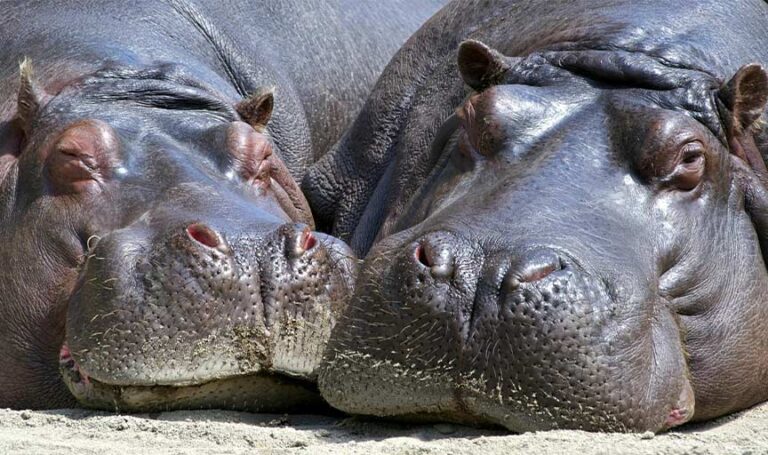Colombia sterilises first hippo left behind by Pablo Escobar amid ecological disaster
Pablo Escobar, the notorious Colombian drug lord and sole leader of the Medellín Cartel might be six feet under, but he bequeathed us with a legacy that’s as extravagant and, let’s say, wild as his criminal exploits. Picture this: a mansion, once home to the infamous narcoterrorist, is now overrun by not-so-cuddly creatures—hippopotamuses. Yes, you read that right, apart from cocaine, the guy also had a thing for illegal animal imports.
On Tuesday 14 November 2023, the Colombian government initiated the sterilisation process for hippos in the country, with two males and one female undergoing surgical sterilisation, as announced by environmental authorities. This marks a significant step in the government’s broader initiative to manage the population of over 169 hippos freely roaming in some rivers without supervision, all thanks to Escobar.
The comprehensive plan involves the annual sterilisation of 40 hippos, potential relocation to other countries, and, controversially, the consideration of euthanasia. The hippos, having expanded from Escobar’s estate into nearby rivers, have thrived without natural predators in Colombia, earning them the label of an invasive species capable of disrupting the local ecosystem.
Why the fuss? Well, it turns out that, over the years, the hippos multiplied like rabbits. From a humble four gifted to Escobar straight out of Africa, the hippo population in Colombia has ballooned to a staggering 169. It’s like a real-life version of Jumanji, only with a sprinkle of drug lord vibes.
Without crocodiles, lions, or other predators to regulate their numbers, the hippo population is experiencing unchecked growth. According to a study mentioned in The Guardian, if left unaddressed, it is projected that by 2034, the hippo count could surge to a staggering 1,400, creating a scenario of exponential population expansion with potential ecological consequences.
Sterilisation, however, is not a walk in the park. Spotting and capturing these three-tonne hulks is about as complicated as Escobar’s business model was. Rainy days make it even more challenging. As explained by Echeverry, the head of the environmental office in charge of the plan, “They have an oversupply of food, so baiting them to capture them becomes even more complicated.”
That’s why Colombia is also exploring the option of exporting Escobar’s unconventional pets abroad. The government of Antioquia state, situated in the northwest of Colombia, is currently in negotiations with a park in India, eyeing the possibility of sending 60 of these hefty creatures across continents. Additionally, they are considering dispatching 10 hippos to a sanctuary in Mexico.
“It would be a great relief,” local fisherman Zapata told The Guardian from the porch of his riverside wooden house by the river. “Please, if other countries can help, take them all.”
For now, however, the government is grappling with the financial burden of sterilisation, and it’s no small bill, coming in at a hefty $9,800 per hippo. And there are risks—because playing animal doctor with three-tonne patients involves allergic reactions, potential death, and hazards for the brave souls trying to keep these hippos in check.






